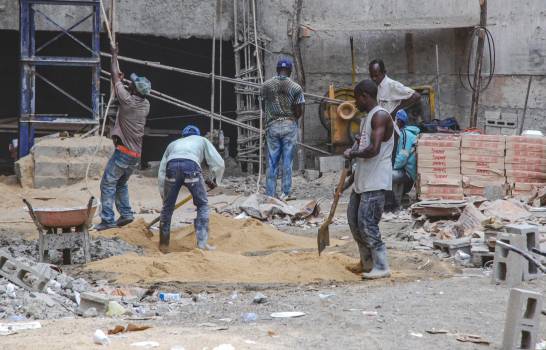
When the newspapers talk about “foreigners,” they are generally talking about Haitians, the largest group of immigrants in the country. Normally, other foreign nationals are referred to by their country: Russians, English, Canadians, Americans, etc.
Last week, President Abinader and the National Immigration Council put out a series of new measures that deal with issues surrounding “foreigners.”
Among the measures is an ultimatum to the business community regarding the hiring of foreigners. Another measure, which made headlines right away was the prohibition of limiting entrance of pregnant women who are six or more months into the pregnancy from traveling here.
Some observers note the warning issued by Abinader when during his speech at the United Nations General Assembly, he declared that “there is not, nor will there be, a Dominican solution to the Haitian crisis.”
The Industrial Association of the Dominican Republic (AIRD) voiced their approval of the new measure that gives employers up to three months to get their employees’ immigration status up to date.
The measure, in part, is intended to provide incentives for Dominicans to get jobs now done by undocumented Haitians, since there is a law on the books, since 1992, that requires that any company must have 80% of its workforce Dominican, but this law has never been observed or obeyed.
The groups that fight to protect women’s rights were highly vocal calling the entry ban on six-month pregnant women discrimination and a violation of basic rights. It is obvious that the measure is an attempt to reduce the heavy expenditures incurred when Haitian women come to the Dominican Republic to give birth at the public hospitals.
There are regions where 90% of the beds in the maternity unit are filled with Haitian women. Overall, Haitian women represent close to half of all births in public hospitals run by the National Health Service. The service is free to the Haitians, at a heavy cost to local taxpayers.
Spokespersons for the National Health Service say that because the women from the neighboring nation seldom, if ever, have any pre-natal care, their pregnancies are often high-risk. This explains the rising infant and maternal mortality at these hospitals.
In the general labor market, mostly in farming and construction, the idea of getting 80% of the workforce to become Dominican is considered utopian. Currently, the ratio of Haitians to Dominicans in these areas hovers around 95%, with the remaining 5% Dominicans being foremen, supervisor or farm bosses. That is just the reality. Unfortunately, these workers do not have formal work contracts, although the construction and farm bosses often pay into the Social Security System, which includes health care.
While it would be ideal to have the Haitian workers well identified, and well documented, there are very high costs involved that neither the Haitians nor their employers have been capable or willing to pay, both on the Dominican side and the Haitian side of the border, as reported in Diario Libre.
Read more in Spanish:
Diario Libre
El Dia
4 October 2021

